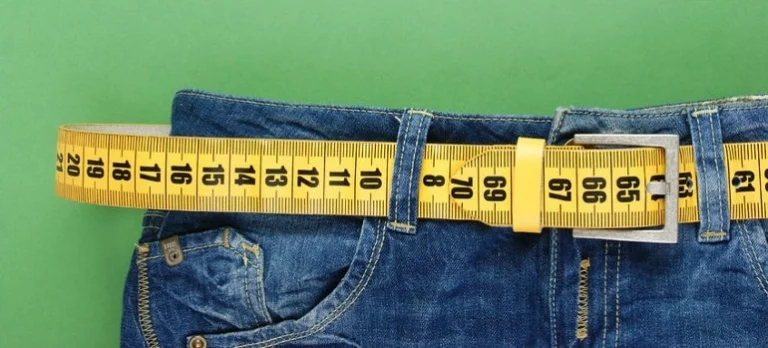Beat The Bloat To Lose Weight With Phentermine
It’s a familiar story for many of us – you’ve done really well with eating healthily this week, and the scale says you lost weight, but your bloated stomach seems to tell another story. Many of us suffer from bloating, which can be really demoralizing, especially when you’re working so hard to lose weight. Bloating on phentermine may be related to the side effects of constipation and can also be worse for many women during their period. However, it could be a result of recent changes to your diet in an attempt to eat better. There are some foods that can trigger bloating more than others, so here we run through some foods that commonly cause bloating and what to eat instead.
Beat The Bloat To Lose Weight With Phentermine
Bloating is when your stomach feels swollen or enlarged, and is usually caused by gas or digestive issues. Since phentermine causes constipation, it’s important to take steps to avoid this common side effect by staying hydrated with plenty of water while also staying away from coffee and alcohol due to their diuretic properties. If you’re experiencing bloating as a result of constipation, then you should also avoid sodium and artificial sweeteners. Many women also suffer from bloating before and during their periods. Although this is a temporary problem that resolves itself within a few days, you can find some great tips to help with your period here.
Bloating can also be a result of eating too quickly, so be sure to eat your food slowly and chew every mouthful thoroughly before swallowing. This is also a way to help you eat less food as taking your time to eat often means you become fuller quicker and savor your food more, leading to a lower calorie intake and greater appetite satisfaction.
Foods That Can Cause Bloating
If you are still suffering from bloating and aren’t sure why, it could be due to one of these common bloating-causing foods.
1. Beans & Lentils
Beans and lentils are both types of legumes, and while they are very healthy and full of fiber, they can cause bloating, gas, and discomfort for people with irritable bowel syndrome (IBS) or those with sensitive digestive systems. If you have IBS, pinto beans and black beans should be easier to digest, and soaking lentils overnight can help make them easier for your digestive system. However, it is also important to remember that bloating can be a result of suddenly increasing your fiber intake. So, if you’ve just switched to a healthier diet with lots more fiber than you were used to eating, then this could be the reason for your bloating. To avoid this, you should gradually increase your fiber intake over a week or two rather than a sudden increase.
2. Carbonated Drinks
Sparkling water can be a great substitute for helping you quit soda, but carbonated drinks can cause bloating. This is because these drinks contain the gas carbon dioxide, and when you drink carbonated drinks, you swallow large amounts of this gas, leading to a bloated stomach and even cramps. To avoid bloating, stick to plain water or tea.
3. Wheat
Wheat is found in many nutritious foods, such as breakfast cereals, whole grain bread, and whole grain pasta, all containing plenty of fiber to help keep you full and stop you from getting hungry between meals. Some people can be sensitive to wheat itself, while others are sensitive to the gluten it contains, with celiac disease being the most serious form of gluten intolerance. Although the vast majority of people have no intolerance to wheat or gluten, these ingredients have now become the number one enemy of many dieting ‘experts’, who say that gluten is the main cause of bloating.
In terms of weight loss, it’s actually better to stick to whole-grain products like pasta and bread, as these contain more fiber and weight-loss boosting nutrients than their over-processed gluten-free versions. If bloating is an issue for you and you suspect it may be due to an intolerance or sensitivity, it’s advisable to consult your family doctor before making any dietary changes. It may be that you have a wheat allergy, in which case you should avoid wheat but can eat other grains, or gluten sensitivity, which means you may feel better when you eat fewer gluten-based products. But, these can only be determined by a doctor; an intestinal biopsy is the only way to detect celiac definitively, and the danger of self-diagnosing and taking wheat or gluten out of your diet prematurely is that you will never be able to get an accurate diagnosis of your symptoms.
4. Gum
Chewing gum can be a great way to keep your mouth busy and your mind off food while you’re losing weight with phentermine, but it can actually cause your belly to swell since you’re swallowing large amounts of air. In addition, gums often contain artificial sweeteners such as xylitol, sorbitol, and mannitol. These sweeteners often cause bloating, gas, and discomfort as they reach the large intestine unchanged and can be difficult for the gut to break down. So, pop the gum habit and see if that helps with bloating.
5. Onions
Onions are the main dietary source of fructans, a soluble fiber that is known to cause bloating. Most people tend to have more issues when eating raw onions, so consider leaving them out of your salad and see if consuming cooked onions helps. Alternatively, you can experiment with herbs and spices to add a boost of flavor to your meals while also still benefiting from a range of health-boosting properties.
6. Cruciferous Veggies
This refers to vegetables in the same family, including broccoli, cabbage, and cauliflower. These are all great foods for long-term weight loss, offering additional benefits through weight-loss-boosting vitamins and minerals. However, they can also cause bloating. This is because they contain a complex sugar called raffinose, which can be hard to digest for some people. As with onions, cooking often makes these vegetables easier to digest, but you could also try swapping these for equally nutritious veggies such as zucchini, spinach, cucumber, and lettuce, which don’t cause bloating.
7. Dairy
Dairy is very nutritious and a great source of protein and calcium; plus, the consumption of low-fat dairy has been found to increase fat burn. However, some people can be intolerant to lactose, the sugar found in dairy. Sensitivity to lactose can cause belly discomfort, bloating, and gas, so if you think that dairy could be the cause of your bloating, then switching to lactose-free dairy milk could help you discover if that’s the case. Some lactose-intolerant people find that fermented dairy, such as yogurt or kefir, is easier to digest, so even if you are intolerant to some dairy, that’s no reason to give it up entirely.
…
Do you suffer from bloating? Has it become worse since starting phentermine? Or, do you have any other tips to beat the bloat? Let us know by commenting below!
Did you like the article?
Subscribe to our weekly newsletter and get our best weight loss tips straight to your inbox!








